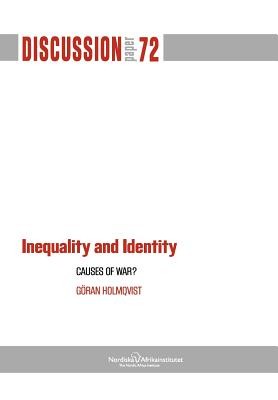
- We will send in 10–14 business days.
- Author: G Ran Holmqvist
- Publisher: Nordic Africa Institute
- Year: 2012
- Pages: 44
- ISBN-10: 9171067140
- ISBN-13: 9789171067142
- Format: 17 x 24.4 x 0.2 cm, minkšti viršeliai
- Language: English
- SAVE -10% with code: EXTRA
Reviews
Description
In this paper, four theories on the causes of civil war are reviewed. One theory, associated with Paul Collier, emphasises feasibility over factors related to grievance. A second theory, espoused by Frances Stewart, focuses on the role of horizontal inequalities. The third theory, identified with William Zartman, highlights the different roles "need, creed and greed" factors play in various phases of a conflict. And the fourth theory, associated with the World Bank/World Development Report 2011, points out "commitment" problems leading to institutional failures as a crucial factor. Each of the theories leads to quite different policy conclusions. Their strengths and weaknesses, and their claimed empirical support, are discussed. In addition, some of the mechanisms underpinning the theories are highlighted on the basis of empirical data. In particular, the central role of horizontal inequalities between social groups is discussed.
- Author: G Ran Holmqvist
- Publisher: Nordic Africa Institute
- Year: 2012
- Pages: 44
- ISBN-10: 9171067140
- ISBN-13: 9789171067142
- Format: 17 x 24.4 x 0.2 cm, minkšti viršeliai
- Language: English English
In this paper, four theories on the causes of civil war are reviewed. One theory, associated with Paul Collier, emphasises feasibility over factors related to grievance. A second theory, espoused by Frances Stewart, focuses on the role of horizontal inequalities. The third theory, identified with William Zartman, highlights the different roles "need, creed and greed" factors play in various phases of a conflict. And the fourth theory, associated with the World Bank/World Development Report 2011, points out "commitment" problems leading to institutional failures as a crucial factor. Each of the theories leads to quite different policy conclusions. Their strengths and weaknesses, and their claimed empirical support, are discussed. In addition, some of the mechanisms underpinning the theories are highlighted on the basis of empirical data. In particular, the central role of horizontal inequalities between social groups is discussed.


Reviews